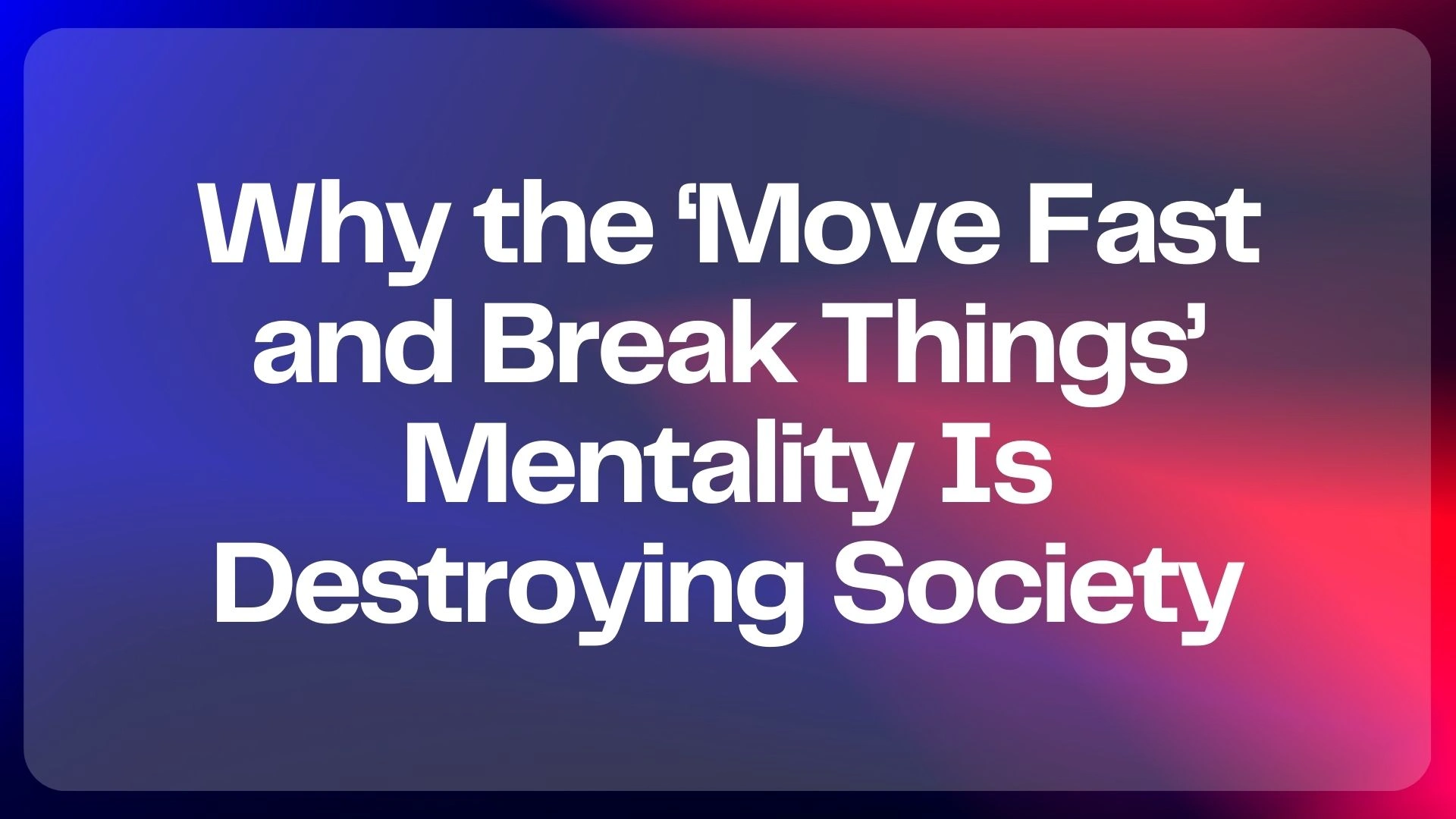Introduction: Move Fast and Break Things
The phrase “Move Fast and Break Things” became synonymous with Silicon Valley’s aggressive push for rapid innovation. Coined by Facebook’s Mark Zuckerberg, this mantra encouraged startups to prioritize speed over caution, disruption over deliberation. While it initially propelled massive technological advancements, its consequences are now coming to light—privacy violations, social division, misinformation, and even threats to democracy. But how did we get here, and is there a way to reverse the damage?
The Origins: A Culture of Disruption
Silicon Valley’s Obsession with Speed
Tech startups thrive on iteration and rapid scaling. The logic is simple: release a product fast, see how users interact with it, and fix issues later. This methodology works well for software development but proves dangerous when applied to social systems.
Facebook, Uber, and the ‘Break First, Apologize Later’ Model
From Uber disrupting transportation laws to Facebook’s role in spreading misinformation, major tech companies have embraced this model, often neglecting ethical considerations.
The Consequences of Moving Too Fast
1. Privacy Breaches and Data Exploitation
One of the most glaring consequences of this mindset is the reckless handling of user data. From the Cambridge Analytica scandal to countless data breaches, companies have repeatedly put profits before privacy.
2. The Spread of Misinformation
Social media algorithms, optimized for engagement rather than truth, have fueled the spread of fake news, deepening political divisions and eroding trust in institutions.
3. Gig Economy Exploitation
Ride-sharing apps and food delivery services revolutionized convenience but often at the expense of workers’ rights. The rush to disrupt industries left many without job security, fair wages, or benefits.
4. Environmental Impact of Tech Growth
Tech companies move fast but rarely consider sustainability. From e-waste to massive energy consumption, the environmental cost is often ignored in the pursuit of scale.
The Ethical Responsibility of Innovators
Why Ethics Must Be Built Into Innovation
Companies must integrate ethical considerations from the start rather than as an afterthought. Ethical tech design, user-centered policies, and transparent decision-making can help mitigate harm.
Shifting from Growth-at-All-Costs to Sustainable Innovation
Tech firms should prioritize long-term societal benefits over short-term profits. Governments and regulatory bodies must also play a role in enforcing accountability.
Conclusion: A Call for Responsible Innovation
The “Move Fast and Break Things” era has come at a high cost. While innovation remains essential, it must be balanced with ethical responsibility. The next wave of technology should focus on moving thoughtfully—ensuring that progress does not come at the expense of society.
FAQs
1. What does “Move Fast and Break Things” mean?
It refers to a philosophy in tech that prioritizes speed and disruption over careful planning and ethical considerations.
2. How has this mindset harmed society?
It has contributed to privacy violations, misinformation, labor exploitation, and environmental harm.
3. Are there alternatives to this approach?
Yes, ethical innovation focuses on responsible development, prioritizing user well-being and sustainability.
4. Can regulation help mitigate these issues?
Stronger regulations can hold tech companies accountable and encourage more ethical innovation.
5. What can consumers do?
Consumers can support ethical companies, advocate for better policies, and be more critical of tech services they use.
Move Fast and Break Things, tech disruption, Silicon Valley culture, social impact of technology, ethical tech, innovation vs. responsibility, tech industry ethics, Silicon Valley impact, startup failures, disruptive innovation risks

